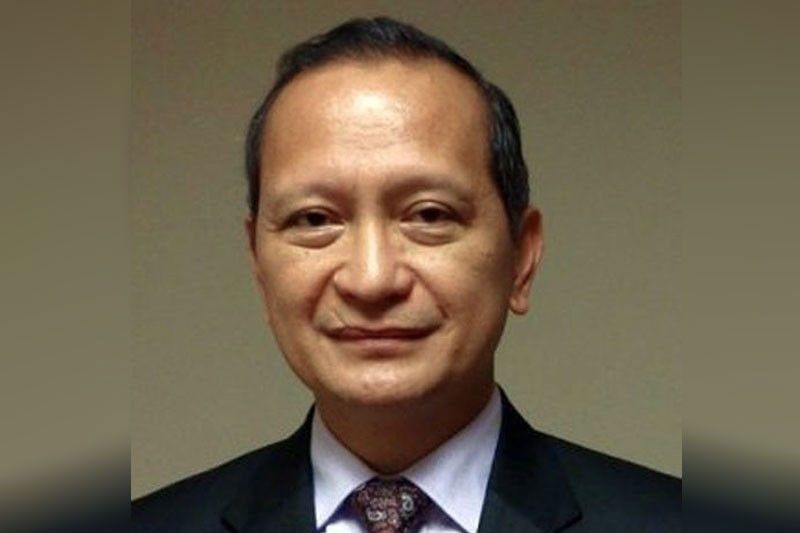Sebastian also quitting DA after downgrade

MANILA, Philippines — Another senior official of the Department of Agriculture (DA) opted to retire amid the ongoing major reshuffle being implemented by Agriculture Secretary Francisco Tiu Laurel Jr.
DA spokesperson Arnel de Mesa confirmed yesterday that Agriculture Undersecretary Leocadio Sebastian will retire effective Feb. 1 after he was replaced as undersecretary for rice industry development by officer-in-charge Roger Navarro.
Laurel issued Special Order No. 1 downgrading the position of Sebastian to a member of the secretary’s technical advisory group.
Former agriculture senior undersecretary Domingo Panganiban also chose to retire from government service amid the reorganization at the DA. His retirement took effect on Jan. 1.
De Mesa maintained that the retirement of both Panganiban and Sebastian was their own decision.
“It was their own decision to retire, nothing (controversial, rift with the DA), there is nothing. This is (a normal course) since we have a new administration, so this is part of courtesy and others are (part) of the decision of the Secretary,” he said.
De Mesa said that the reorganization is part of efforts to ensure an efficient operation and management of the DA.
“We expect additional movement not only in the central office but also the bureaus and regional offices,” he added.
According to De Mesa, it is up to President Marcos if he will appoint another senior undersecretary after the retirement of Panganiban but Secretary Laurel can recommend.
De Mesa said that at present, there are six remaining undersecretaries of the DA following the retirement of Panganiban and Sebastian.
Laurel has also formed a team at the DA that is solely authorized to prepare communications with the Office of the President (OP).
SO 8 appointed Field Operation Service OIC director U-Nichols Manalo as team leader of the OP-Presidential Management Staff Concerns with Michael Sollera as co-team leader.
De Mesa assured the public of improved services of the DA.
“Definitely you can expect changes in the policy towards the goal of improvement in our response and the implementation of various programs,” he said.
Rice price hike
The retail price of rice has further increased in the latter part of December 2023 as the upward trend in the cost of the staple food is expected to persist this 2024, according to De Mesa.
He added that imported rice continues to go up in the international market as it reached more than $600 per metric ton (MT).
“The regular (milled rice) ranged between P50 and P53 (per kilo). Same with well-milled rice, it is also increasing,” De Mesa said.
He admitted that the arrival of 495,000 MT of imported rice will not help bring down the retail cost of the grains because the existing price in the international market is also high.
Based on monitoring of the DA in Metro Manila markets, the retail price of local regular milled rice was sold as high as P53 per kilo; local well-milled rice, P56 per kilo; local premium rice, P62 per kilo; local special rice, P68 per kilo; imported well-milled rice, P56 per kilo; imported premium rice, P61 per kilo and imported special rice, P65 per kilo.
De Mesa, however, gave assurance of enough supply despite the high retail price of rice.
“With the arrival of 3.5 million MT, plus the local harvest of more than 20 million MT, we have about 80 to 90 days inventory after December,” he said.
He added that about 100,000 MT of the total have already arrived.
Latest data from the Bureau of Plant Industry showed that a total of 3.48 million MT of rice imports arrived in the country last year, as of Dec. 28.
This is lower than the 3.826 million MT imported in 2022.
De Mesa added that the country needs to secure the rice stocks amid the possible impact of the El Niño phenomenon.
“We know that we will have El Niño. We have additional challenges in our level of productivity and we need to ensure we have enough supply during the El Niño,” he noted.
At the same time, De Mesa said that the P30.8 billion additional funds earmarked for the DA will help minimize the impact of El Niño.
“Definitely, it will be a big help as it will provide additional direct assistance to the farmers in terms of inputs, fertilizers, seeds and machineries. This is on top of the regular Rice Competitiveness Enhancement Fund of P10 billion every year plus the excess collection that can be given directly to the farmers,” he said.
The P30.8 billion was allotted to the National Rice Program of the DA under the 2024 General Appropriations Act. – Catherine Talavera
- Latest
- Trending


























